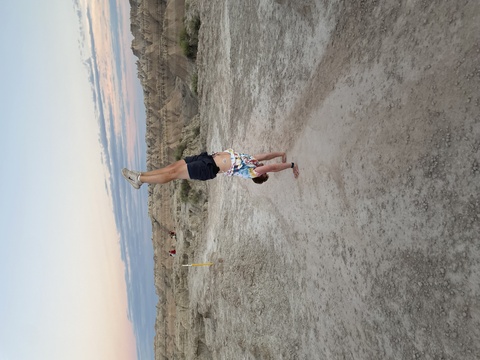
Undergrad: Human physiology and Spanish, University of Iowa
Though he didn’t know it at the time, Mark Schmidt, Jr. took the first step on his path to a career in medicine at the age of five, when he was diagnosed with Type I diabetes. He got accustomed to being in medical settings over the years, and the physician assistants (PA) who cared for him made an especially big impact.
“I built a good relationship with my doctor, but I spent much more time with the PA,” Schmidt says. “I thought, ‘Yeah, I could totally see myself doing this.’”
After completing his undergraduate degree at the University of Iowa, Schmidt took a two-year break from school to work in the emergency department at University of Iowa Hospitals & Clinics as a nursing assistant.
“I fell in love with emergency medicine. That experience really solidified things for me,” he says. “I saw what doctors did—and what PAs, NPs [nurse practitioners], and respiratory therapists did. You see a bunch of different things through all aspects of care."
His next step was PA school. He appreciated the Carver College of Medicine's co-educational approach to PA training and the reputation for interprofessional collaboration that the program has built.
“We’ve been learning everything with the medical students, which will make for great teamwork,” he says.
The road to residency training
Schmidt was already confident that he wanted to pursue emergency medicine. He had connected with Nathaniel Shekem, PA-C, MPAS, who serves as program director for the University of Iowa Emergency Medicine Physician Assistant Residency Program, during his time working in the emergency department.
Shekem runs medical simulations with realistic patient models for the physician residents in the emergency department. He worked with Schmidt to extend this educational opportunity to his PA and MD classmates in the Emergency Medicine Interest Group.
“He would walk us through as if we were actually seeing a patient,” Schmidt says. “No matter what stage of learning you were in, you could pick up something from those cases. As a first-year student, it helps you to use what you’re learning from lectures and apply it to a case. For students in their clinical years, they were able to be tested on what labs or imaging they needed to order.”
Schmidt had decided to take his Iowa medical training one step further. He will begin residency training in emergency medicine in February, a step that only a small percentage of PA graduates take. Residency training isn’t mandatory for PAs, but for Schmidt, it was a practical decision based on his career goals.
“I chose to do it in order to learn to see high-acuity patients faster,” Schmidt says. “With emergency medicine, anything could come through those doors. I feel like there’s still so much to see.”
He hopes that deepening his experience through residency training will better equip him to follow his dream of working near a national park, where medical resources may be more limited than in an urban setting.
“Working in a rural area with less support, you really have to know what you know—and know when you need extra help,” Schmidt says. “I think going through this residency is going to set me up well for that. I’ll see different things and do more hands-on procedures. That way when I’m out there by myself, it’ll be second nature."


Pediatric endocrinology is also close to Schmidt’s heart, though, and he’s leaving the possibility open that he may someday change specialties so he can use his first-hand experience living with diabetes to provide compassionate treatment for kids with the same condition.
“It’s so relatable when you can have someone say, ‘I went through exactly what you’re going through. I know it’s not easy. I understand the struggle,’” he says.
His fondest memories, as he looks back on his time at the Carver College of Medicine, are of the strong bond his class had with one another.
“From the first day of classes up until now, we all get together as a group for breakfast once a semester,” he says. “The bond that we have through this PA class is strong, and that’s always going to stick with me.”